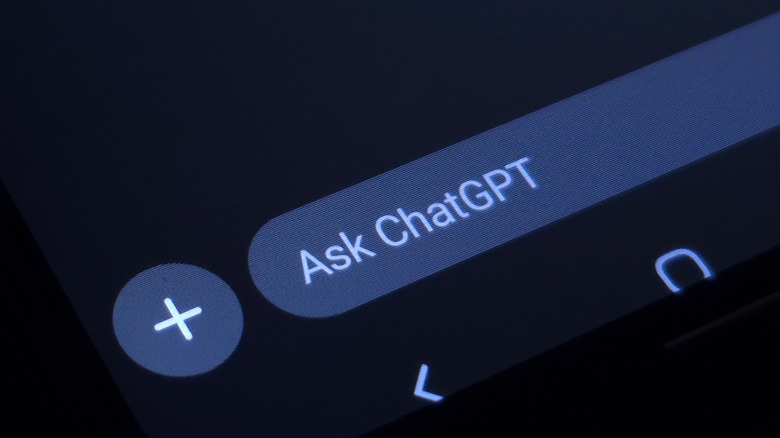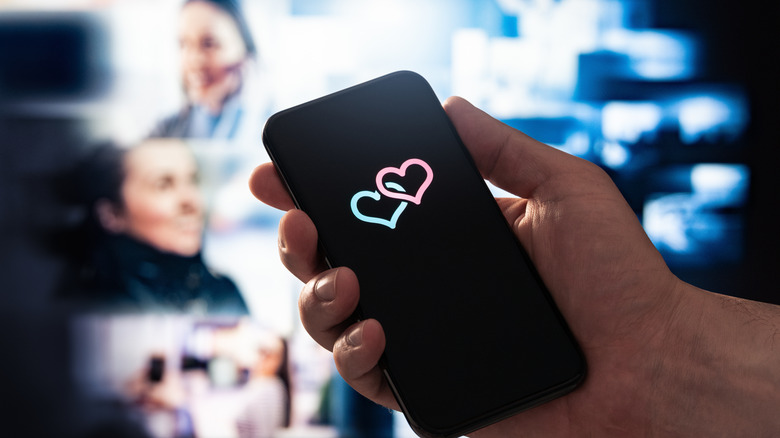5 Popular ChatGPT Tips That You Should Never Use
ChatGPT is quite a revolutionary tool that's making many aspects of everyday life easier, such as getting organized, learning new languages, writing emails, and understanding difficult concepts. However, it's important to appreciate its limitations too. We've already covered some of the things you should never ask ChatGPT, such as medical or mental health advice, but there are plenty of other popular ChatGPT tips that you should never use. The internet and particularly social media is filled with content creators and even AI-generated content suggesting creative uses of ChatGPT that promise everything from romance to riches.
It's easy to come across plenty of ready-made prompts that you can copy and paste into ChatGPT to get a perfectly optimized dating profile, fitness regimen, or financial plan. But it's important to proceed with caution. Just because something is technically possible doesn't mean it's actually a good idea. In this article, we'll discuss some of the popular ChatGPT tips that you should steer clear of if you want to use AI responsibly and protect yourself from risky outcomes. Please think twice before using these viral tips that can, in fact, do more harm than good!
Don't date ChatGPT or ask it for dating advice
ChatGPT makes for a great travel companion, but don't make it your romantic companion too. Scrolling through social media like TikTok, Instagram, or YouTube, you might come across videos of people treating ChatGPT like a boyfriend or girlfriend. While most are intended to be humorous or entertaining, things can quickly take a dark turn. There have been instances of people relying on ChatGPT for full-fledged romantic relationships. These are categorized as parasocial relationships, which can have harmful effects on your mental health. While some light flirting with your favorite chatbot might start off as just for fun, there's no telling when it can escalate into something unhealthy, so it's best to steer clear of using ChatGPT this way.
In fact, you should keep your romantic life completely free of AI intervention and not use ChatGPT as a source of dating advice either. There are plenty of videos online offering ChatGPT prompts to help enhance your dating profile or even respond to your chats in a more flirtatious and attractive way. While this might seem helpful, it masks your authentic personality and can be seen as a form of deceitful behavior. After all, you probably want a romantic partner who's attracted to you as you are rather than a false persona created by a chatbot. So, for a healthy emotional experience, it's best to not involve ChatGPT in your love life.
ChatGPT is not a legal advisor
It's easy to assume that AI has access to all the information available on the internet, including the law, which is typically complex and difficult to understand for most of us. It can therefore seem convenient and affordable to seek it out for advice about legal matters. In fact, studies have shown that people trust advice given by ChatGPT more than human lawyers. This is rather alarming because it creates a false sense of security. While ChatGPT and other AI tools can summarize legal concepts or explain terminology in plain language, they are not qualified to interpret or apply the law to your specific circumstances. Laws differ by jurisdiction, are constantly evolving, and often require nuanced understanding of context, intent, and precedent. These are all things an AI model cannot accurately assess. Moreover, ChatGPT does not have access to up-to-date legal databases, nor can it verify whether the information it generates aligns with current legislation or case law.
At the same time, another key concern is accountability. If an AI tool provides incorrect or misleading advice that results in financial loss, legal penalties, or other consequences, there is no legal recourse, unlike with a licensed lawyer who is bound by professional ethics and responsibility. Relying on AI for legal guidance can therefore lead to serious, unintended consequences, which you should strictly steer clear of.
Don't ask ChatGPT for fitness plans
Many fitness influencers are now offering ChatGPT fitness plans or prompts to help you get in shape without needing to consult a personal trainer. This can certainly seem like a pretty cool and convenient way to get fit, but it's actually risky. While ChatGPT can generate awesome workout routines, meal plans, and motivational advice, it lacks a contextual understanding of your individual health data, medical history, or fitness level. Even if you provide these details, there's no guarantee that ChatGPT will make a fitness plan that's necessarily right for you. Exercise and nutrition are deeply personal and depend on factors such as age, weight, metabolism, pre-existing injuries, and underlying health conditions that are best addressed by a human trainer. Without such knowledge, any plan generated by AI may lead to overtraining, injury, or nutritional imbalance.
Further, ChatGPT is not a certified fitness professional and cannot evaluate your form, technique, or recovery needs. Proper exercise guidance involves real-time assessment and adjustment that AI simply cannot provide. Following an AI-generated plan without expert supervision can also reinforce misinformation, because ChatGPT might give you content that's based on outdated or inaccurate sources. Until AI gets more sophisticated, it's best to stick with human trainers and conventional fitness apps for your workout needs.
Keep your academic work original
ChatGPT can be a great resource for schoolwork like essays or research papers. However, it's critical to understand its limitations and the risks of plagiarism. Using it to generate content for your academic work can undermine both your learning and credibility. This is because the content it generates is not always based on verified academic sources. Rather, it draws from patterns in the data it was trained on. This means it can produce inaccurate, misleading, or fabricated information, including false citations or misinterpreted theories.
More importantly, submitting AI-generated text as your own work is considered academic misconduct in most institutions. Even if you rewrite or paraphrase AI content, plagiarism detection tools are becoming increasingly sophisticated and can identify when text lacks genuine human reasoning or original thought. Beyond the risk of penalties, over-reliance on AI also weakens your ability to think critically, construct arguments, and engage deeply with your subject, which are all the key skills that education is meant to develop in the first place. Therefore, although ChatGPT can be a valuable study companion and help you manage your schedule, for instance, it's a huge risk to base your academic work on AI-generated content.
Don't trust ChatGPT for financial advice
Most of us are always looking for ways to increase our income and better manage expenditures. At the same time, it can be quite daunting to understand financial intricacies like investments and taxes. This is perhaps the reason that some of the most popular ChatGPT tips found online are to do with managing money, getting rid of debt, and budgeting your life. But this can be a serious mistake and end up costing you more in the long term. ChatGPT does not have access to real-time market data, tax laws, or your personal financial situation. Investments, savings, and tax planning all depend on highly individualized factors such as income, debt, goals, risk tolerance, and regional regulations which the AI cannot accurately account for.
What makes it worse is that ChatGPT might generate confident but incorrect or outdated information, which can lead to poor financial decisions or even legal trouble if it involves misinterpreting tax or investment rules. It's crucial to remember that the AI is not regulated, licensed, or legally accountable for the advice it gives. Furthermore, using AI for financial guidance also raises privacy concerns, as sharing personal financial details in a chat may compromise your security. So, although financial advisors or accountants might be expensive upfront, they offer you the reliability and peace of mind that ChatGPT simply can't.





